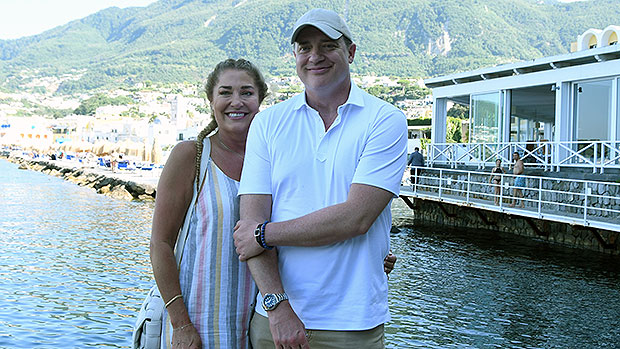Our legal system is burdened with a multitude of challenges, including overflowing dockets, insufficient judges, and inadequate court infrastructure. These obstacles not only hinder the effectiveness of able-bodied lawyers but present an even greater challenge for lawyers with disabilities. However, the mere fact that these issues exist and our judges face an overwhelming workload cannot be a justification for denying a reasonable accommodation to lawyers with disabilities. It is essential to recognize and address their unique needs to foster inclusivity and uphold the principles of justice.

In our opinion, the infusion of adjudication with values of inclusion and reasonable accommodation is anchored in the right to Access to justice guaranteed by Article 13 of the United Nations (UN) Convention on Rights of Persons with Disabilities, 2006. To unravel the contents of this right, the UN has recently adopted the ‘International Principles and Guidelines on Access to Justice for Persons with Disabilities 2020. Principle 7.1 of the same inter alia obligates “The right to equal access to justice requires that persons with disabilities have the opportunity to participate directly in adjudicative processes and be involved in various roles in the administration of justice on an equal basis with others. States should ensure that persons with disabilities are able to act as judges, lawyers, prosecutors, witnesses, jurors, experts and court officials in the justice system without discrimination.”
The Rights of Persons with Disabilities Act, 2016, provides certain explicit guarantees for individuals with disabilities. Section 2(y) defines ‘reasonable accommodation’ and emphasizes the need for necessary and appropriate modifications, except when they impose an undue burden, to ensure the equal enjoyment or exercise of rights for persons with disabilities. Section 12 envisages the responsibility of the appropriate government to ensure access to court documents, disabled-friendly hearings, and the participation of disabled individuals as witnesses.
However, much more needs to be done to enable lawyers with disabilities to participate meaningfully and effectively in court proceedings.
First and foremost, judges need to be sensitized to the specific needs of lawyers with disabilities. Judges should ensure that all documents in a case are made available to a lawyer with a disability in accessible formats, and court registries need to be equipped to spearhead this exercise. Many aspects of adjudication rely on non-verbal cues, such as nodding to express assent or exchanging information with other judges. Verbalizing these actions and ensuring that visually impaired lawyers understand them is crucial. By actively communicating and accommodating these lawyers, judges can create an environment that promotes equal participation.
Second, judges should be willing to provide breaks and short adjournments to lawyers with disabilities to locate necessary information. Unlike their able-bodied counterparts, these lawyers face additional challenges in processing information due to the need to simultaneously listen to the judge and other counsel, and utilize computer resources. Granting breaks allows them to access the information they require, ensuring that the proceedings are not unduly delayed and justice is upheld.
Third, judges should consider allowing juniors or colleagues of lawyers with disabilities to read out portions of documents that may be inaccessible to them. This simple adjustment empowers lawyers with disabilities to overcome limitations and ensures they can effectively advocate for their clients. Similarly, for hearing-impaired lawyers, establishing a system where they can pre-arrange the presence of sign language interpreters alleviates any communication barriers during proceedings.
Judges play a pivotal role in promoting inclusion within the legal profession. It is imperative that they actively encourage the promotion of lawyers with disabilities who demonstrate diligence and competence. By appointing them as amicus curiae (friends of the court) in cases concerning the disabled or inviting them to share their experiences and challenges in judicial academies, judges can harness their expertise and elevate their voices. This approach not only fosters inclusivity but also educates the legal community about the unique perspectives and contributions of disabled lawyers.
The focus should not be on glorifying lawyers with disabilities or placing them at a disadvantage. Rather, our legal system must prioritize ensuring their full and effective participation, ensuring accessible documents, similar to their able-bodied counterparts. This is also in line with the mandate of the International Principles and Guidelines on Access to Justice for Persons with Disabilities. By sensitizing judges to their needs, granting necessary breaks, facilitating assistance from juniors and interpreters and proactively promoting their professional growth, we can foster an inclusive legal environment where every lawyer has an equal opportunity to uphold justice.
Recognizing the rights of lawyers with disabilities and providing reasonable accommodations in court proceedings is not only a matter of compliance with the law but also a crucial step towards a more equitable and just legal system. It is also in tune with the idea of ‘epistemic justice’ evolved by philosopher Miranda Fricker in her famous book, Epistemic Injustice: Power and the Ethics of Knowing. One of the important insights to be drawn from her scholarship is to attach equal significance to lived experiences of people with different capacities. Adjudication would become more inclusive and equitable by factoring in the lived experiences of lawyers with disabilities in their framing of arguments, thereby enhancing the capacity of the judges to adjudicate more effectively.
By actively embracing inclusivity, we can transform our courts into bastions of fairness and ensure that no lawyer is left behind due to their disability. We all must remember the Supreme Court’s memorable words in the case of Rajive Raturi vs Union of India: “A lawyer can be just as effective in a wheelchair, as long as she has access to the library and to whatever other resources she needs to do her job well.”
Rahul Bajaj is co-founder, Mission Accessibility, Senior Associate Fellow, Vidhi Centre for Legal Policy and Attorney, Ira Law. Sanjay Jain is professor of Law, National Law School, Bengaluru.
The views expressed are personal















